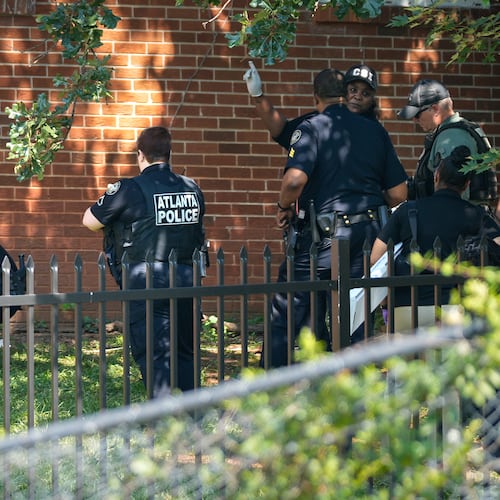What does the “Letter From Birmingham Jail” reveal about the Rev. Martin Luther King Jr., known as an agent of social change, a dreamer and peacemaker?
That he was at times angry and frustrated, yet able to maintain a deep sense of black solidarity and justice?
Perhaps all of this and more, says Jonathan Rieder, the author of “Gospel of Freedom: Martin Luther King Jr.’s Letter From Birmingham Jail And the Struggle That Changed a Nation.”
King wrote the lengthy letter in response to a statement in the newspaper by leading white religious leaders that called the Birmingham campaign unwise and untimely and praised the “calm” manner police had handled the protests.
On the 50th anniversary of the letter, Rieder dissects the famous document and the man who wrote it. Rieder will read from his book and autograph copies at 7 p.m. Wednesday at the Jimmy Carter Presidential Library & Museum, 441 Freedom Parkway.
Rieder said “in contrast to the dreamer, you meet a very tough man who had a very hard-boiled understanding of social change.”
On why the letter is considered a seminal piece of work:
I’d start with its obvious artistic quality and dramatic power. But there is also the eloquent power of its moral vision: that law should embody respect for every person, that we have a moral duty to care about suffering humanity, that appalling silence — simply standing on the sidelines while others are humiliated and brutalized — is itself a sin. It’s quite amazing when you consider that even as King was filled with a passion for delivering his own people, he never stopped caring about humanity as a whole.
On the many facets of King that are revealed between the lines of the letter:
One of the wonderful things about the “Letter” is that we encounter King in all his fullness: the dignified and polite King who addresses his critics as “my dear fellow clergymen,” the loving King who grieves for a church that has lost its way, the professorial King who quotes fancy philosophers like Paul Tillich, the tour guide King who takes whites on a voyage deep into black pain so maybe he can appeal to their pathos. But we also meet the cocky King who is schooling these white clergymen in the true meaning of their own faith; the passive-aggressive King who throws out little zingers at his critics; the angry prophet who chastises whites for the sin of racism and indifference to black suffering; and we also meet the King of black pride who knows that blacks are alone in an indifferent America.
On King’s frustration with these moderate men of faith who wrote the letter in the newspaper:
You have to understand that King was in a depressed and agonized mental state when he was in jail. He had spiraled down into depression. He felt betrayed by blacks in Birmingham who hadn’t risen up to go to jail. If you look at the photograph before they went to jail, Rev. Fred Shuttlesworth and Rev. Ralph Abernathy were smiling. But King looks pensive and nervous. Certainly not confident. … If he always had a rough time when he was alone in jail, this was one of the roughest times. … He read the statement of those eight white clergymen, among the most liberal on race in the entire state of Alabama, and it set him off. They were calling him an extremist, as if there was no difference between King and Bull Connor. Maybe they didn’t like (George) Wallace, but they called for law and order; they didn’t say love the Negro because he is your brother. And so suddenly King was surging up out of the valley back up the mountain on a tide of indignation. He had regained his warrior spirit.
About the Author
Keep Reading
The Latest
Featured



